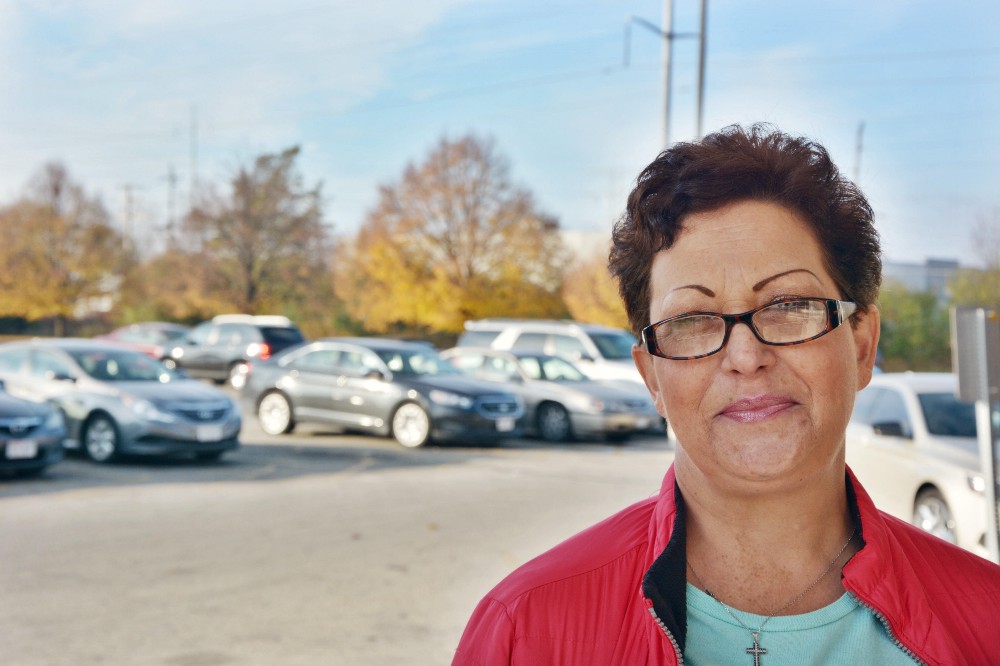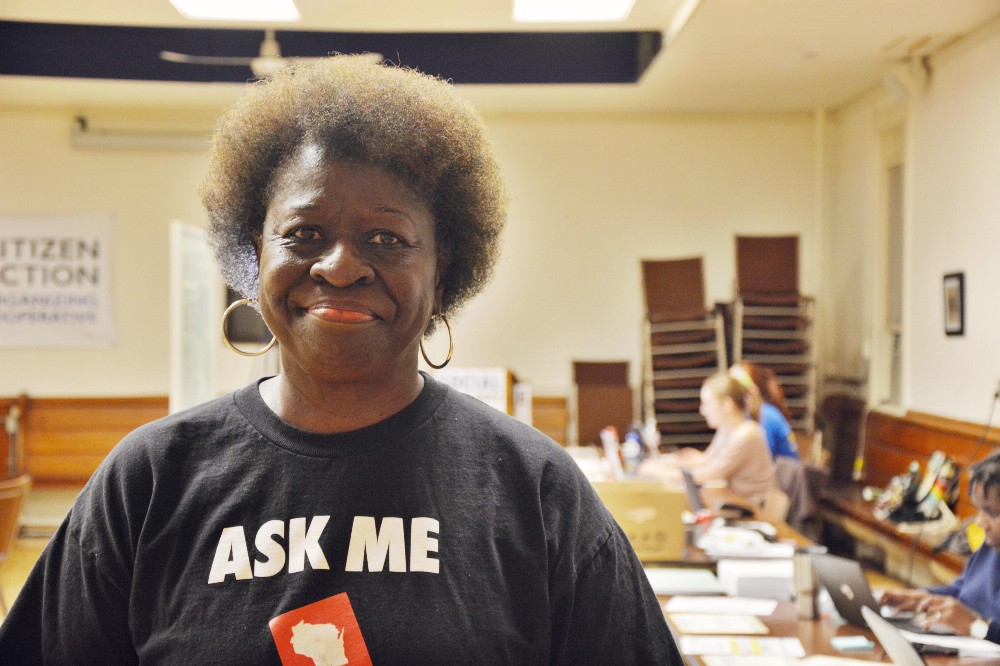MILWAUKEE, WISCONSIN — For most Americans, the act of casting a ballot is a one-stop trip to their local polling location. But for thousands of Wisconsin residents hoping to vote on Tuesday, participating in Election Day is requiring hours of extra work—and a trip the DMV.
Earlier this year, a trio of Republican judges restored a law requiring all voters in the Badger State to provide a photo ID when they go to the polls. Although touted by Republican Gov. Scott Walker as a way to stave off voter fraud, the law actually created a complicated and often arduous process that has left many frustrated as they flood local DMVs to collect some form of state ID in order to participate in the democratic process.
Worse, voter protection advocates say confusion over the law could disenfranchise thousands.
The rush to obtain proper documents is partly why the line outside the Department of Motor Vehicles in northern Milwaukee looked eerily similar to a voting queue on Tuesday morning. Many said they were there for reasons other than voting, but several said they had come to accrue the proper ID to be able to vote.
Among those bundled up outside the door was Mary, a nursing assistant and the second person in line. She said she had been standing there since 7:30am—almost an hour in 56 degree weather—waiting to get her driver’s license renewed so she could vote.
Despite her ordeal, she said she was supportive of the ID law.
“You want everybody to be accountable,” she said. “You want me to make sure that people are supposed to vote, that they’re legal to vote, that we don’t have any injustices that, you know, Donald Trump seems to think we’re doing.”

But while voter ID laws have been pushed primarily by Republican lawmakers, Mary harbored no love for the GOP nominee.
“I am very proud to say that I do not support Donald Trump,” she said, raising her voice as others behind her nodded in agreement. “What a moron.”
Other voters are far less supportive of the new law. Speaking to ThinkProgress via cell phone as she stood inside a DMV on the other side of the state, Trivia Day of Sun Prairie, Wisconsin expressed irritation with the process. She said she only learned about the law after seeing a flier from a community agency, and had to call an organization to charter a cab to take her the DMV to get a replacement ID.
“I just think there isn’t enough awareness [of the law],” she said, noting that she planned to visit her polling location immediately after acquiring her new ID. “A lot of people don’t know that. I think they try to do a good job to help people they need to help, but it’s just not enough awareness.”
“I would not have [voted]. I don’t have an ID, I don’t have a car, and I live outside of Madison.”
Asked if she would’ve voted had she not known about the law, Day, a Democrat who plans to support Clinton, said no.
“I would not have,” she said. “I don’t have an ID, I don’t have a car, and I live outside of Madison.”
Voters like Day are being assisted by VoteRiders, a national organization based in Wisconsin that works to educate voters about state Voter ID laws and help people acquire the proper documents to vote. But while the issue potentially impacts thousands of Wisconsin voters, VoteRiders is hardly equipped to assist them all: the group only has one organizer specifically dedicated to helping people in the state (although their national coordinator, Molly McGrath, is based in Madison).
That organizer is Anita Johnson, a veteran voting rights advocate who also oversees a non-partisan Get Out The Vote effort in Milwaukee.

She spoke to ThinkProgress the night before Election Day, sitting in the pew of a local Catholic church as a team of volunteers diligently scheduled rides to the polls behind her. She said she’d spent the past few weeks helping desperate voters acquire IDs so they can participate in early voting, often driving them to the DMV herself.
“This is disenfranchisement—it definitely is,” she said. “The legislators knew what they were doing when they brought this law into play. You and I work every day—we have an ID. But suppose I’m a single mother, and I’m working two jobs, and all of sudden I need a new driver’s license that is $34. You think I’m going to go get that driver’s license? No, I’m going to continue to feed my kids until I have to get it… It’s not a priority in a lot of families because they really don’t have the money to get a new driver’s license, or the $28 to get a state ID.”
The state of Wisconsin is required to provide some form of voting license for free, but Johnson also confirmed the plausibility of a nightmare scenario: If a voter has an out-of-state driver’s license and rushes to the DMV to get a new one it in order to vote—but only has the documents to acquire a state ID—they could hypothetically get an ID that allows them to vote but not drive. Their old driver’s license would be rendered invalid, leaving the voter stranded at the DMV, unable to legally drive out of the parking lot.
“There is a possibility that over 300,000 people in the state of Wisconsin will not vote because of the confusion over voter ID,” she said. “And they might even have the right ID but just aren’t sure.”
“I haven’t been everywhere to educate,” she said, grimacing. “I can’t hit every part of the state.”

